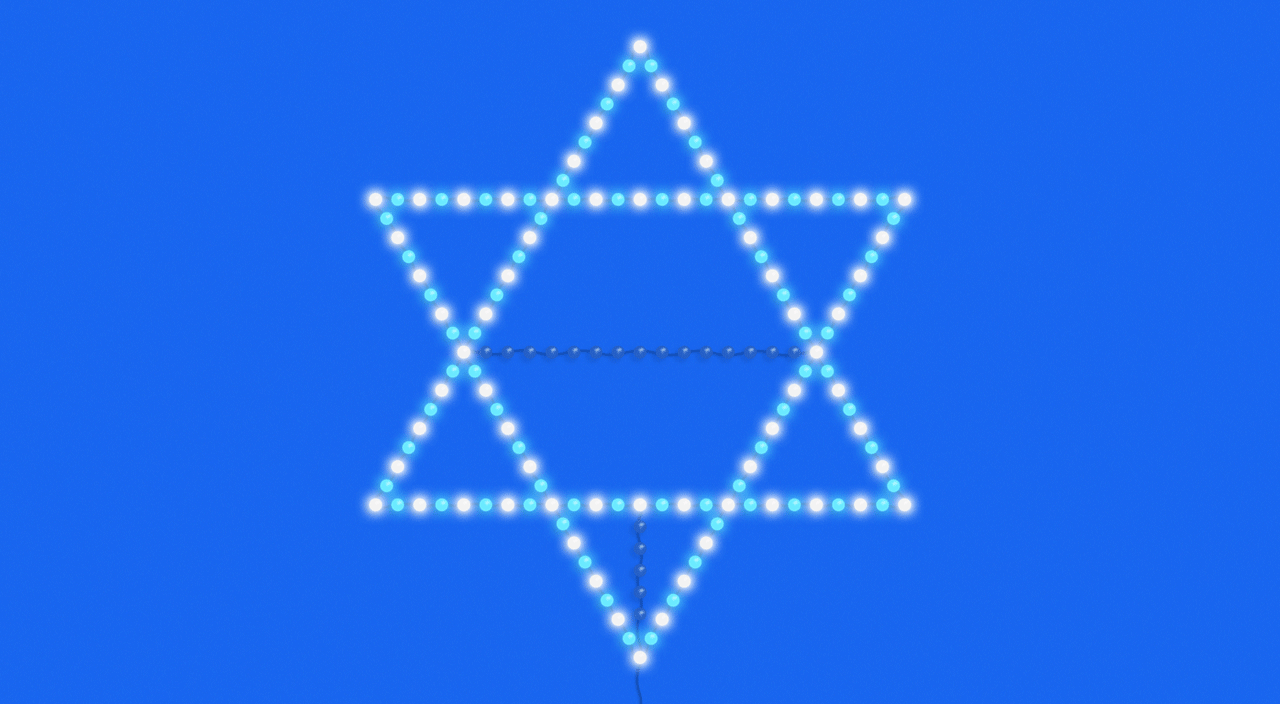AARP Hearing Center


My Iatke recipe is scrawled on a small piece of white paper dotted with islands of absorbed grease. I copied it from a children’s storybook. It's the classic: made with grated russet potatoes, onion, matzoh meal, egg, salt, pepper, paprika and lots of oil.
As I fry my potato pancakes for the holiday, I imagine women gathering, grating potatoes by hand in a tiny home in a wooded shtetl somewhere in once-Russia-once-Poland, from whence my family escaped. Some place like Anatevka from "Fiddler on the Roof."
My imagination plays a big role here. I don't recall making latkes in our Brooklyn kitchen with my own mother. And while I did have two grandmothers that I knew as a child, I don't seem to have Hanukkah memories or even family recipes. When I became a mother, I decided I was in the memory-making business — moments to give my children they could look back on when they thought of Hanukkah.
In 1991, I married a man who grew up Catholic, and we had two children — my now adult sons. My then-husband had no interest in religion — any religion, but he agreed we could bring up our children in the Jewish faith. It was left to me, a mostly cultural Jew to determine what that meant.
Over the years, when December came around, I celebrated Hanukkah with my sons by making latkes and lighting candles, playing games of dreidel, and noshing on chocolate coins. For my husband, we had a Christmas tree. I didn't mind. I still love the lights and tinsel, black-and-white holiday movies and stockings hanging over the fireplace — I called it kitschmas, a Jesus-less affair that made my husband and children happy.
But always in the days leading up to the winter holidays, I felt anxious. I knew my parents weren’t thrilled about the tree. I worried Jewish friends would think I’d sold out. Plenty of people voiced their concern that we would confuse our children.
Latkes are a traditional food served at Hanukkah, the eight-day holiday commemorating the victory of the Jews over Greek King Antiochus in 164 BCE. Antiochus would not allow the Jews to practice their religion and destroyed their temple in Jerusalem. After the rebellion, the Jews wanted to rededicate the temple but found only enough oil to burn for one day.
The miracle of Hanukkah is that the oil lasted eight days. Jews the world over recognize this miracle by lighting candles and cooking foods in oil such as latkes and sufganyiot (jelly donuts).
My sons never seemed confused or worried — Hanukkah and Christmas, a bounty of family and gifts.
But, as it will this year, some part of Hanukkah often fell on Christmas Eve or Christmas Day. When that happened, celebrating Hanukkah would sometimes get lost in the tinsel. I'd forget to light the candles on more than one night. Eight small gifts parceled out one day at a time was adjusted to one gift at the beginning and one at the end of the holiday. Christmas was the star, the possibility that the Santa Claus tale could be true. Creating Hanukkah memories and a tradition seemed a moving target.
My children's father and I parted ways after 17 years of marriage. We were an amicable divorced pair and co-parents to our then 9- and 12-year-old. It made those two, sometimes competing holidays easier.































.jpg?crop=true&anchor=13,195&q=80&color=ffffffff&u=lywnjt&w=2008&h=1154)






























You Might Also Like
Watch ‘Taking Care’ with Seth and Lauren Miller Rogen
A brave and inspiring documentary about one family’s experience with Alzheimer’s
Jessica Seinfeld Knows ‘There Are No Shortcuts’ in Life
She’s all about moderation, whether it’s enjoying being an empty nester or cuddling with her cats
Mark Bittman’s Gift-Worthy Treat Recipes
Tie a ribbon around these homemade bonbons, peanut brittle and fig-filled cookies